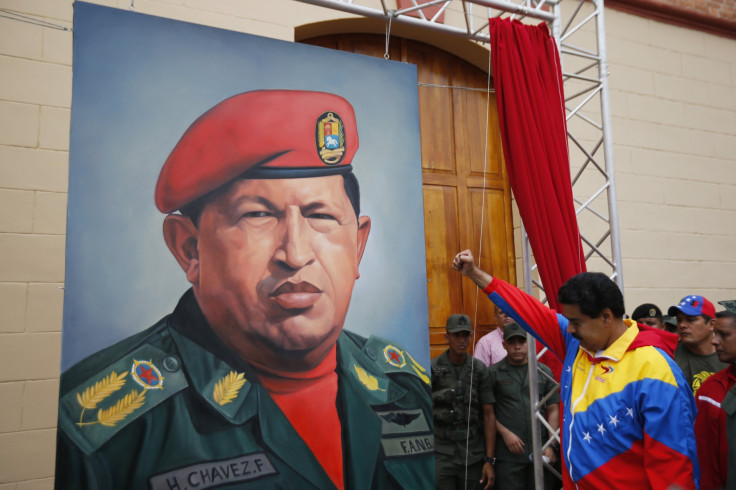Venezuela's Rampant Inflation And Dwindling Foreign Exchange Reserves Spark Moody's Downgrade

Moody’s Investors Service knocked Venezuela down a notch on Monday, downgrading the country’s credit deeper into junk territory and cutting its currency ratings amid fears of uncontrollable inflation and a deteriorating economy.
The credit rating agency cited “increasingly unsustainable macroeconomic imbalances” and “materially higher risk” of an economic and financial collapse in its decision, which moved the country’s currency and bond ceiling ratings to Caa1 and Caa2, respectively, both of which are “speculative” grade.
Moody’s also maintained a negative outlook on both ratings, which means the situation could get worse before it gets better.
A key risk is inflation. Currency inflation has crossed the 50 percent mark for the year to date. Meanwhile, a flourishing black market for the U.S. dollar allows Venezuelans to sell one dollar for 10 times the official exchange rate, since dollars are so sought after. In November, President Nicholas Maduro forced businesses to slash the cost of consumer goods, to temporarily beat back high inflation, Reuters reported.
The country’s current account surplus also shrank by 35 percent for the past three quarters relative to the same three quarters in 2012. “Foreign exchange reserves have reached perilously low levels,” wrote Moody’s in its release.
At the same time, key government officials have signaled that they may loosen some of the country’s strict currency controls. On Monday, Venezuelan oil minister and vice president for the economy Rafael Ramirez said an existing currency auction system, called Sicad, will gain more importance in the fight against the underground foreign exchange market, according to the Financial Times.
Economists have argued that Venezuela needs to devalue its currency, to close deficits. The official exchange rate is 6.3 bolivares to the U.S. dollar, a rate set by the currency control body Cadivi. Analysts polled by Bloomberg said Venezuela is likely to devalue its currency significantly in early 2014.
Venezuelan bond yields have also spiked, running sovereign yields to 15 percent earlier this month, from under 10 percent in May. Mediocre GDP growth of 1.4 percent in the first three quarters of 2013 was described by Moody’s as “anemic.”
If “macroeconomic imbalances” are fixed, though, Moody’s could change its mind and bolster the country’s reputation in financial markets again. Late last week, rival credit agency Standard & Poor’s cut Veneuzela’s credit rating to B minus, saying that economic policy there had become “radicalized.”
Venezuela is Latin America’s largest crude oil producer, making about 2.4 million barrels per day. Economic and political instability could disrupt that supply, wrote Citigroup Inc. (NYSE:C) analysts in a research note on Monday.
© Copyright IBTimes 2025. All rights reserved.






















